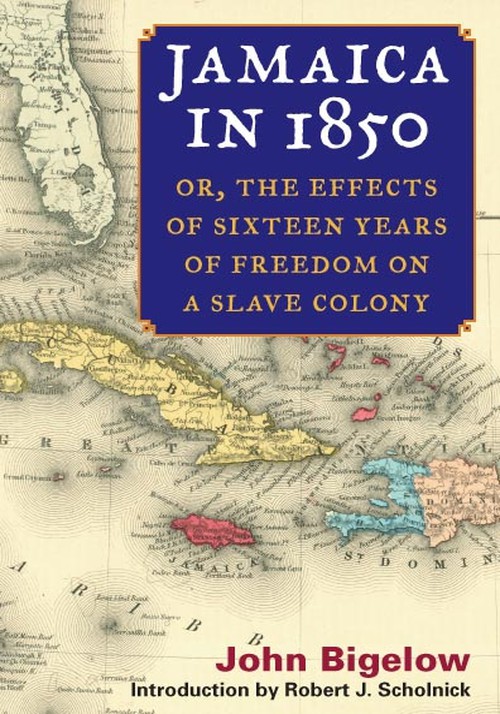
Jamaica in 1850
or, The Effects of Sixteen Years of Freedom on a Slave Colony
Introduction by Robert J. Scholnick
A reporter's firsthand portrait of formerly enslaved Jamaicans in the years after emancipation
Paper – $28
978-0-252-07327-4
Publication Date
Paperback: 06/12/2006
About the Book
John Bigelow’s Jamaica in 1850 provided an important document in the antislavery movement in the United States and Great Britain. Jamaica’s economy had collapsed after the 1838 emancipation. American supporters of enslavement used the Jamaican example to argue that abolition at home would unleash economic and social chaos. Bigelow’s vivid eyewitness reporting undermined that widely held view by proving Jamaica’s problems originated in the incompetence of absentee white planters and an obsolete colonial system. As Bigelow showed, many once-enslaved Jamaicans had in fact become successful small-scale landowners in the twelve years after emancipation while the large plantations languished.About the Author
John Bigelow (1817-1911) was an editor at the New York Evening Post and an organizer of the Free-Soil party.Reviews
"Jamaica in 1850 is easy to read, absorbing and most enlightening. . . . [and] considered a brilliant expression of [Bigelow's] commitment to freedom, democracy and racial equality."--Sunday Gleaner"Very few books have the scope of Jamaica in 1850. . . . To support his conclusion that slavery had blinded the planters to the economic inefficiencies of the plantation system, Bigelow used graphic descriptions, sound economic arguments, and persuasive logic."--Journal of African American History
"An insightful firsthand account of postslavery Jamaica in 1850."--New West Indian Guide







